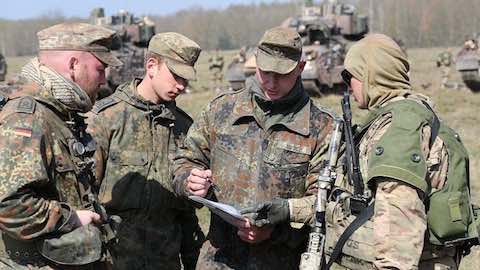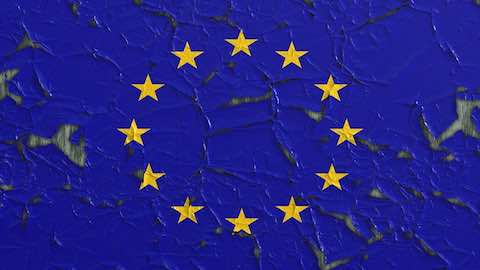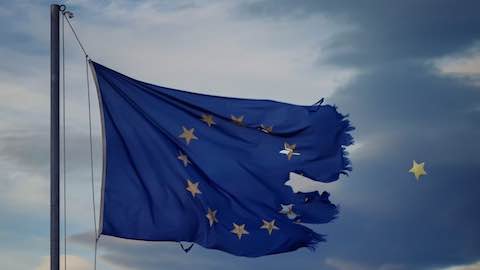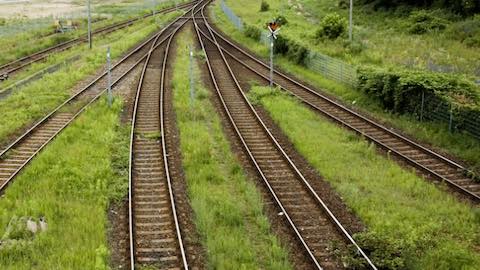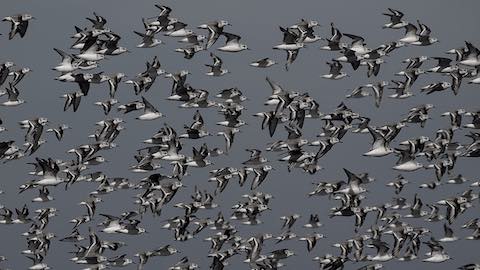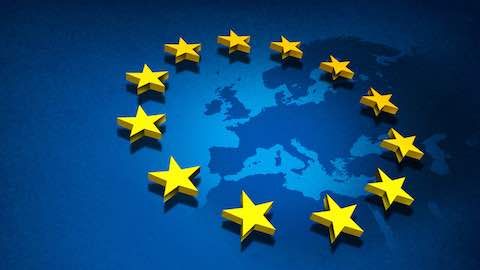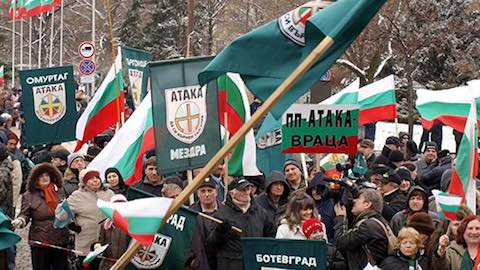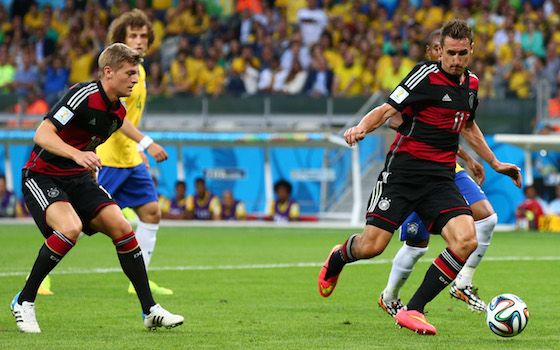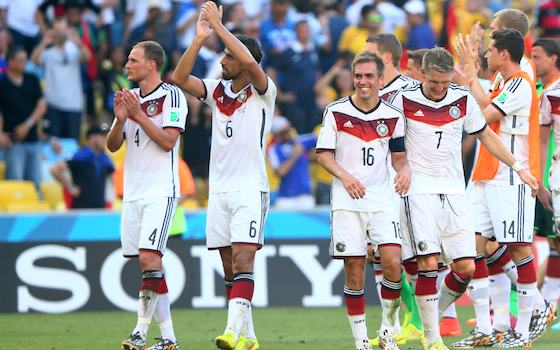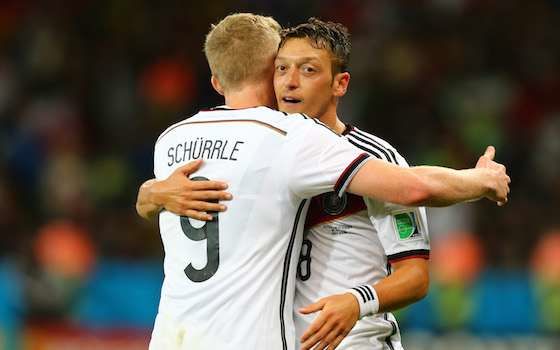- MENU
- HOME
- SEARCH
- WORLD
- MAIN
- AFRICA
- ASIA
- BALKANS
- EUROPE
- LATIN AMERICA
- MIDDLE EAST
- United Kingdom
- United States
- Argentina
- Australia
- Austria
- Benelux
- Brazil
- Canada
- China
- France
- Germany
- Greece
- Hungary
- India
- Indonesia
- Ireland
- Israel
- Italy
- Japan
- Korea
- Mexico
- New Zealand
- Pakistan
- Philippines
- Poland
- Russia
- South Africa
- Spain
- Taiwan
- Turkey
- USA
- BUSINESS
- WEALTH
- STOCKS
- TECH
- HEALTH
- LIFESTYLE
- ENTERTAINMENT
- SPORTS
- RSS
- iHaveNet.com: German Current Events
Countries
Argentina | Australia | Austria | Benelux | Brazil | Canada | China | France | Germany | Greece | Hungary | India | Indonesia | Ireland | Israel | Italy | Japan | Korea | Mexico | New Zealand | Pakistan | Philippines | Poland | Russia | South Africa | Spain | Taiwan | Turkey | United Kingdom | United States
WORLD CUP PHOTOS
-
Coverage, analysis, photo and video coverage of the 2014 FIFA World Cup from Brazil
-
The outcome of the recently concluded European Parliament elections is described as a shock or crisis, but the actual reaction is better named hysteria, as if the rise of the right in these elections resembles the rise of fascism in the 1930s
-
Vladimir Putin's annexation of Crimea and threat to Ukraine are causing damage he perhaps did not anticipate: disorientation of the United States and profound division in Europe, especially in Germany, and in NATO. A real risk of war
-
Just days before their first match of the 2014 World Cup competition, German captain Philipp Lahm said he was in good form and fully recovered from a foot injury which he sustained during the German Cup final on May 17
-
It is not simply the euro zone that is threatened by the dramatic economic discrepancies that now exist among its members. Now it is the European Union itself that is in danger, mainly but not entirely because of the economic crisis inherited from Wall Street abuses
-
Germany's Chancellor Angela Merkel says that the answer to Europe Union's problems is more political integration. But, one is left asking what closer political union can bring to the EU without a full transfer of national sovereignties to European institutions
-
European governments have been expressing faux outrage over American intelligence activities in the wake of the documents released by Edward Snowden indicating that the United States bugged European reps in Washington, D.C.
-
Not only was the intercept of European states' communications cause for outrage, but these countries' diplomatic premises in Washington, the United Nations and elsewhere being penetrated and bugged, as well as those of the European Union
-
Midfielder Arjen Robben scored in the 89th minute as Bayern Munich defeated Borussia Dortmund, 2-1, in a thrilling all-German contest to win the UEFA Champions League title
-
Three countries with a rich heritage -- Germany, Hungary, and Austria -- each have a constantly evolving sightseeing scene. Here's the latest vacation travel ideas for 2013
-
Hamburg is Germany's second-largest city and its most important port. Like other great European 'second cities' -- such as Marseille, Glasgow, and Barcelona -- this northern port city has a special pride. Hamburg has a real feel and edgy charm
-
There is the idea that political decisions are unpredictable, or less predictable than economic decisions. I would argue that political decisions are predictable
-
Germany's Julius Brink and Jonas Reckermann wasted three match points, but won gold with the fourth as they beat Brazil's Alison Cerutti and Emanuel Rego in a three-set thriller
-
Days after a German Olympic rower was ejected from the Games Village on suspicion that her boyfriend was part of a 'far-right' group that allegedly attacked police personnel, investigations opened
-
Moody's cuts its outlook for three European nations with triple-A ratings -- Germany, the Netherlands and Luxembourg -- as more uncertainty in the euro-zone debt crisis unfolds
-
Nearly every step towards total union has revealed still more of the inherent factors of disunity in Europe and has dramatized how distant 'Europe' has become from the simple and lucid ambitions of its origins
-
The European Union is at risk of being destroyed by the euro. The credit crisis has created divisions in Europe which are undermining what was supposed to be mutual confidence and solidarity
-
Elections in Greece and France may be further dividing the Continent
-
Germany booked a place in the semifinal round of the European Championship 2012 in historic fashion, hammering Greece, 4-2, for a record 15th consecutive win
-
With Germany enjoying historic lows in unemployment, why is she resisting calls to open her purse strings to help the eurozone's floundering members? It is worth examining why Germans see things differently
-
I'm captivated by the Rhine. There's a rhythm to the mighty river that merges with its environment: black slate cut from plains above, terraced vineyards zigzagging up hills, husks of ruined castles, and stoic spires of stone churches slicing vertically through townscapes
-
You can learn a lot about Europe's current economic crises by just ignoring the sophisticated barrage of news analysis and instead watching, listening, and talking to people
-
It's time Europe stopped viewing immigrants as a threat to society
-
New political leaders do not invent new national strategies. Rather, they adapt enduring national strategies to the moment. And for France, the underlying issue remains constant: France's struggle for a dominant role in Europe at a time of German ascendance
-
Chelsea captured its first Champions League title after edging Bayern Munich, 4-3 on penalty kicks after battling to a 1-1 draw for 120 minutes in regulation period
-
Several European Union countries said they would join Germany in boycotting the Euro 2012 football tournament unless Ukraine releases former prime minister Yulia Tymoshenko from jail
-
Pope Benedict the 16th established his legacy as a strict theologian and enforcer of Roman Catholic doctrine. Pope ​​Benedict brought to the papacy some tough and controversial points of view
-
A borderland is a region where history is constant: Everything is in flux. Turkey, Romania, Moldova, Ukraine and Poland occupy the borderland between Islam, Catholicism and Orthodox Christianity
-
The euro crisis is now threatening to turn the European Union into something fundamentally different. The member countries are divided into two classes -- creditors and debtors -- with the creditors in charge
-
The Nobel Committee recently awarded its prestigious top prize to 500 million people who have, for the last 65 years, made a conscious decision to live together in peace and harmony: the European Union
-
Long ago I gave up looking for an untouristy, half-timbered medieval German town, but recently, I stumbled upon it in the sleepy town of Erfurt
-
Seventeen economically disparate nations bound their fortunes together in creating the euro zone, and it is exactly this that has thrown the European project into crisis
-
Germany and Europe share a common destiny, a destiny requiring Germany to assume a real leadership. Germany cannot disengage from Europe
-
Throughout the Euro crisis, the Euro elite has suffered from the same inability to imagine failure that led to August 1914. Even days before the outbreak of war, it was thought impossible because the consequences would end the system
-
If the eurozone splinters, it will have been an avoidable disaster. The choice lies with Germany, which can save the monetary union if it allows for policies aimed at debt relief and growth, not just slashing deficits
-
Over the past two years, the eurozone members have done a remarkable job managing the short-term symptoms of the crisis, although the costs have been great. Yet the long-term challenge remains
-
Helmut Schmidt offered perhaps the clearest geopolitical perspective on the currency crisis from a leading German politician
-
Among the core economies of the eurozone, Germany is the most important member, but it will face strong political challenges in the coming months
-
In writing about German strategy, I am raising the possibility that the basic structure of Western Europe since World War II and of Europe as a whole since 1991 is coming to a close
-
Europe was seen as a work in progress moving inevitably toward unification -- a group of nations committed to a common fate. What was a core vision in 2008 is now gone. What was inconceivable -- the primacy of the traditional nation-state -- is now commonly discussed, and steps to devolve Europe in part or in whole are being contemplated. This is not a trivial event
-
Germany's railway company Deutsche Bahn has been criticized in the past for its lack of renewable energy plans. But no more. The company has a commitment to be carbon free by 2050
-
The eurozone fiscal crisis has called into question the future of the European Union project. Unwieldy budget deficits in peripheral eurozone countries have led to calls for the European Commission to strengthen the rules governing member countries, even as stronger EU members reassess the risks and benefits of further European integration
-
The excellent second quarter export and growth results reported by Germany have set that country at an increasing, and increasingly dangerous, distance from the other members of the European Union, with jeopardy to the EU and the euro
-
In Greece, opinion is that once again, as in 1917, 1940 and 1947, when, as they are convinced, they were ill-used by the great Western powers, they once again are victims of Western Europe, and especially of Germany
-
If there's one thing Europe doesn't need, it's more drag on economic growth. Yet that's just what it could be getting, with a fresh dose of snow and frigid weather
-
German exports fell by a larger percentage than forecast for October because of lower demand from southern European markets affected by the economic crisis
-
German Chancellor Angela Merkel has pushed for stronger rules against overspending as the long-term answer to Europe's debt crisis and says the fixes for the eurozone's flaws must be written into changes in the basic EU treaty
-
The stage is set for the 2012 Euro Cup following Friday's draw that saw host Poland and Ukraine getting the top draws while Spain placed in a tougher group. Poland was drawn in Group A along with Greece, Russia, and Czech Republic
-
Everyone is wondering about the next disaster to befall Europe. Italy is one focus; Spain is also a possibility. But these crises are already under way. Instead, the next crisis will be political, not in the sense of what conventional politician is going to become prime minister, but in the deeper sense of whether Europe's political elite can retain power
-
EU leaders announced a new plan to contain the debt crisis in the euro area, after private banks and investors agreed to write off 50% of Greek debt from their books
-
France, like all of Europe, is caught in an economic tsunami, and France is teetering at the edge of the precipice. Every week, it seems, presidents and prime ministers hold urgent meetings searching for a solution, culminating with the G-20 convocation recently. Still, the problem grows only worse
-
Germany says it expects slower growth next year because of anticipated lower demand for the nation's exports
-
The European Union is presently a source of great instability that leaders have yet to tackle. This column argues the current policy response is misguided. The adjustment programmes are bound to fail to achieve sustainable budget deficits, and may result in an unprecedented destruction of economic activity
-
What is increasingly apparent from the 2011 first half economic data in the euro zone is a widening growth gap between Germany and all other euro zone economies. The growth divergence (real GDP) is most pronounced between Germany on the one hand and Portugal, Greece, Spain and Italy on the other hand
-
Manufacturing in the 17-nation eurozone slowed down in August, marking the first time since September 2009 that the manufacturing sector contracted, according to a survey by Markit.
-
A new round of second-quarter GDP figures shows slowing growth in the EU, which makes for a complicated economic situation, as reduced government spending can further stifle growth. Some economists say that, in tackling this dilemma, European governments are focusing too closely on their balance sheets and neglecting to propose real growth policies
-
Touristic, glorious, and romantic, some of Germany's best attractions are in Bavaria. My favorites are three of King Ludwig II's castles: stocky Hohenschwangau, his boyhood home; the nearby and fanciful Neuschwanstein, his dream escape; and Linderhof, his final retreat
-
Germany, while still potentially exposed to the ongoing sovereign debt crisis in some of the peripheral countries like Greece, has the strongest economy in the European Union
-
The DGB Confederation of Trade Unions sought the return of the midday napping tradition or siesta among German workers. The confederation explained that lunchtime power naps are good for the health and performance of employees
-
The European Union's leaders, Germany and France, decided to try to change the EU's Lisbon Treaty. This is a highly charged and divisive move. While the Germans and French want important changes, a large number of the other 25 members do not
-
Multiculturalism has completely failed. That's the assessment of Angela Merkel, chancellor of Germany, in a recent speech before the youth wing of her conservative political party, the Christian Democratic Union. The idea that disparate peoples can 'simply live side by side and live happily with each other' has failed, she said. 'Utterly failed'
-
Today's European crisis has been precipitated by Greece acting with possibly reckless honesty, and Germany behaving badly toward Greece. The latter a case of the pot calling the kettle black; Germany itself is running a deficit of some 3 percent over the EC stability pact limit -- promising, like Greece, to do better in the future.
-
Five NATO governments made it known that they want American nuclear weapons removed from their territory. They include the Benelux three, together with Germany and Norway.
-
From Mario Gomez to Mario Gotze, we count down the top 10 most expensive German Bundesliga signings of all-time!
-
Past debates on the EU's possible emergence as a superpower have usually focused on its influence abroad. However, the EU's ability to project power and influence will also shape its internal future -- by either proving its utility to member states or not
-
When the proposal was initially made for a common European currency, it seemed to be a good idea. Although inexpert in economics, it struck me as an effect of a false analogy with the United States that was common in Europe at that time
-
The European Union has voiced concern about low fertility as a major demographic challenge. If it stays at these low levels, the population quickly moves from growth to decline, which is already happening in Germany, despite immigration
-
While Europe as a whole is suffering from the economic crisis, the Muslim population has been hit particularly hard. This, in addition to the frequent discrimination against Muslims, leaves many Muslims feeling alienated, disenfranchised and resentful
-
We have lived in the post-Cold War world since 1991. The post-Cold War world had two phases. The first lasted from Dec. 31, 1991, until Sept. 11, 2001. The second lasted from 9/11 until now. We are now entering a new period
-
The global financial crisis has slowly yielded to a global unemployment crisis. This unemployment crisis will give way to a political crisis. The crisis involves all three of the major pillars of the global system -- Europe, China and the United States
-
All over Europe, the gospel is that tight-fisted Germans are at the root of the European Union meltdown: They worked too hard, saved too much, bought too little and borrowed not at all
-
Economists continue inveighing against austerity strategies. But none of them seem capable of explaining in plain, simple language why imposing austerity now is utterly foolhardy -- in fact, just plain stupid
-
Voters in France and Greece proved that they're willing to cycle through governments over and over until someone fixes their predicament. They want Santa Claus, as if they were 5 years old again
-
The latest labor market report continued to show a wide disparity in the jobless rates throughout the eurozone. More than a quarter of the workforce is unemployed in both Spain and Greece, while in Germany only 5.4 percent are out of work
-
Bayern Munich has signed Pep Guardiola for a three-year coaching deal beginning next season.He replaces Jupp Heynckes, 67, who is completing his third stint as Bayern coach
-
Like ghosts from the past, we see political violence, xenophobia, migrants being scapegoated and extreme nationalism creeping into our public debates -- even into our parliaments. This is a Europe diverging from its founding principles
-
History is not an alibi, but neither is ignorance or indifference to history, from which Germany has richly profited since 1948. Greece was less fortunate
-
There is a sense of frustration and impotence in watching the eurozone crisis unfold. The crisis could be dealt in a swift and credible way if leaders were capable of acting with vision and a sense of purpose
-
If the euro crisis is not solved, German reunification may ultimately lead to European disintegration. The connection may seem far-fetched. Reunification was a long time ago
-
Bayern Munich has acquired midfielder Javi Martinez from Athletic Bilbao after shelling out a $50 million transfer fee, the richest in the 50-year history of the Bundesliga
-
Europe's new fiscal compact treaty attempts to force regional reform without challenging sovereignty
-
For all the veneer of the 21st century, the world still looks a lot like it did during the last hundred years and well before that
-
Increasingly, the European debt crisis is ceasing to be a Greek or Italian crisis. It is a crisis in the future role Germany will play in Europe
-
The old foes -- who are now EU allies -- are bickering over who is to blame for Greece's economic crisis
-
Socialism and its accompanying economic devastation thrive on complexity and red tape. If something is so simple that anyone can figure it out, then a socialist is being deprived of a livelihood. That's the dragon Europe is now stuck having to slay
-
Even before the financial sector and sovereign debt crisis began to destabilise Europe's banking system, European leaders were voicing fears that the Old World might be slipping towards global irrelevance
-
2012 could be the make-or-break moment for the embattled eurozone. Europe could either continue on the path of ever-greater integration - or return to being a regional group of rival states.
-
The euro should now be recognized as an experiment that failed. The political goal of creating a harmonious Europe has also failed
-
More than any other place in Europe, Berlin is a work in progress. Over the last two decades, ripped-up tracks and a canopy of cranes have signaled its rebirth as a great city. If you haven't been here lately, you won't recognize the place
-
Cradling a cup of hot-spiced wine as a hand warmer, I stroll through Nurnberg's main square. All around me are bundled-up shoppers and kids sampling fresh gingerbread, riding the carousel, listening to roving brass quintets, and marveling at the newest toys
-
It was short-term good news in that it defused 'the bomb' -- the possible catastrophe vortex of failing banks and defaulting sovereigns. The bad news is that it will induce a recession. Banks will create a credit crunch in trying to meet capital adequacy ratios, and the new austerity will create a fiscal contraction
-
The crisis won't be over until the underlying flaw of the euro is fixed -- namely the separation of monetary and fiscal policy. German public opinion has to realise that the euro was built on imperfect foundations and that these imperfections must be corrected. Meanwhile, the Italian president of the ECB will need all his technical and political expertise to keep the Eurozone together
-
Conventional wisdom has it that the eurozone cannot have a monetary union without also having a fiscal union. Euro-enthusiasts see the single currency as the first steppingstone toward a broader economic union, which is their dream. Euroskeptics do, too, but they see that endgame as hell -- and would prefer the single currency to be dismantled
-
European Union leaders have brokered a deal to reduce Greece's debt and hopefully stem the continent's lingering debt crisis. The deal is a major move forward, but it is still only one step in restoring stability on a continent beset by economic woes
-
The plans all are financial solutions to a particular set of financial problems. But regardless of whether they are realistic in addressing the financial problem, the question of whether the financial issue really addresses the fundamental dilemma of Europe -- which is political and geopolitical -- remains
-
The Bundestag, Germany's Parliament, agreed to increase the country's guarantees on European Union loans to $284 billion from $167 billion
-
The history of 20th century American foreign policy largely surrounds efforts to thwart the designs of Germany to dominate Europe. But with a united Germany now the key player within the EU, has the time arrived for the US to forge a 'special relationship' with the European power?
-
Many outward economic indicators still tell a story of German success. Inside, there are many signs of a troubled country lacking a strategic vision for itself and for Europe. The eurozone financial crisis highlights this vacuum - but the heart of the problem is political
-
German Chancellor Angela Merkel says the 17-nation bloc that uses the euro currency must do everything it can to avoid an 'uncontrolled insolvency' by Greece
-
The IMF has recently suggested the recapitalisation of Europe's banks as the most prudent way out of the continent's economic crisis. This column argues that such thinking is based on a flawed analysis of the problem and is an unhelpful distraction at best.
-
As Americans fret about persistent economic challenges, particularly high unemployment, a nearly opposite mood pervades Germany. Neither the economic crises in the rest of the eurozone nor the instability in the Middle East has dampened a deep-seated conviction among German business leaders and economists
-
It is important to understand that the crisis is not fundamentally about Greece. After all, Greece represents only 2.5 percent of the eurozone's GDP, and the bloc's fiscal numbers are not that bad when looked at in the aggregate. The real crisis is the more fundamental question of how the European continent is to be ruled in the 21st century
-
Recent German polls report plummeting support for Chancellor Angela Merkel's ruling coalition, with Merkel's policies and leadership coming under particular fire -- especially regarding the euro crisis, in which she was seen as indecisive by a public concerned about its own national interests
-
The dramatic European Union funding proposal is an important first step. Next comes enforcement of tough fiscal reform guidelines, which introduces a series of new political challenges and risks.
-
Travelers to Germany, Switzerland, and Scandinavia will encounter their share of renovations, red tape, and reinvigorated neighborhoods and sights this year
-
The great economic crisis has given birth to a smaller and tighter monetary union in Europe, under the influence of a Germany that is undergoing a certain estrangement from its European partners. This amounts to a possibly dangerous wager on what the European Union will ultimately become
-
While Europe panicked about Greece, Italy drew closer to the brink of economic ruin. No one was paying attention while Rome was burning. Until recently
-
With no end in sight for the two-year-old euro crisis, the question now is can the EU survive it while remaining united?
-
What made Europe a compelling political, economic, and social alternative wedged between Anglo-American free marketeers and Soviet nomenklatura is rapidly becoming a thing of the past
-
The financial crisis had its greatest impact in Europe, where it is triggering a generational shift. Since 1991, the idea of an integrated Europe has been a driving force of the global economy. Europe also has been presented as an implicit alternative to the United States as the global center of gravity
-
If you want the real reason for concern in the United States about what's happening in Europe, follow the money. A Greek (or Irish or Spanish or Italian or Portuguese) default would have roughly the same effect on our financial system as the implosion of Lehman Brothers in 2008. That is, financial chaos
-
Time is running out for EU leaders to put an end to the Eurozone crisis. This column explains how leaders could find a definitive solution to Greece insolvency, isolate solvent countries from possible Greek contagion, improve EU governance by creating a true European parliament, and refocus on a pro-growth policy mix
-
Repressive regimes of the Middle East and North Africa had all the equipment they needed to quash Arab Spring protests, thanks to arms exporters
-
Europe faces a banking crisis it has not wanted to admit even exists
-
Muliculturalism has failed. So said Chancellor Angela Merkel in a speech in Potsdam last October. David Cameron and Nicolas Sarkozy both echoed her opinion early this year. But it is not easy to know just what they meant. The term is open to so many interpretations and used in so many different ways. Is it an ideology, a set of policies, or a social reality?
-
The European Union is in danger of compounding its ongoing economic crisis with a political crisis of its own making. Over the last year, crises of confidence have hit the 17 EU members that in the years since 1998 have given up their own currencies to adopt the euro. Markets behaved as though the debt of peripheral EU countries was as safe as that of core EU countries
-
Events surrounding the military intervention in Libya these last two weeks, and what already has happened in Tunisia, Egypt and Bahrain, and what continues elsewhere in the region, have produced two unplanned but important results.
-
Thilo Sarrazin's book is still a runaway bestseller in Germany. The book makes an apocalyptic argument -- that immigrants are destroying Germany. In Sarrazin's view, most of the country's large Arab and Turkish populations are not just unwilling but also unable to integrate, and the nation must take urgent steps, starting with a radical overhaul of its welfare system, to avoid a hastening demise
-
Among their other headaches, some of Europe's biggest leaders are troubled by the lukewarm state of their countries' melting pots. A combination of economic recession, terrorism fears and electoral politics has made scapegoats out of immigrants and government multiculturalism policies
-
Shoring up the old while ushering in the new, Germany and Austria invests major bucks to renovate sights, improve transit hubs, and bring soaring viewpoints and opera within easy reach of the public.
© iHaveNet.com
